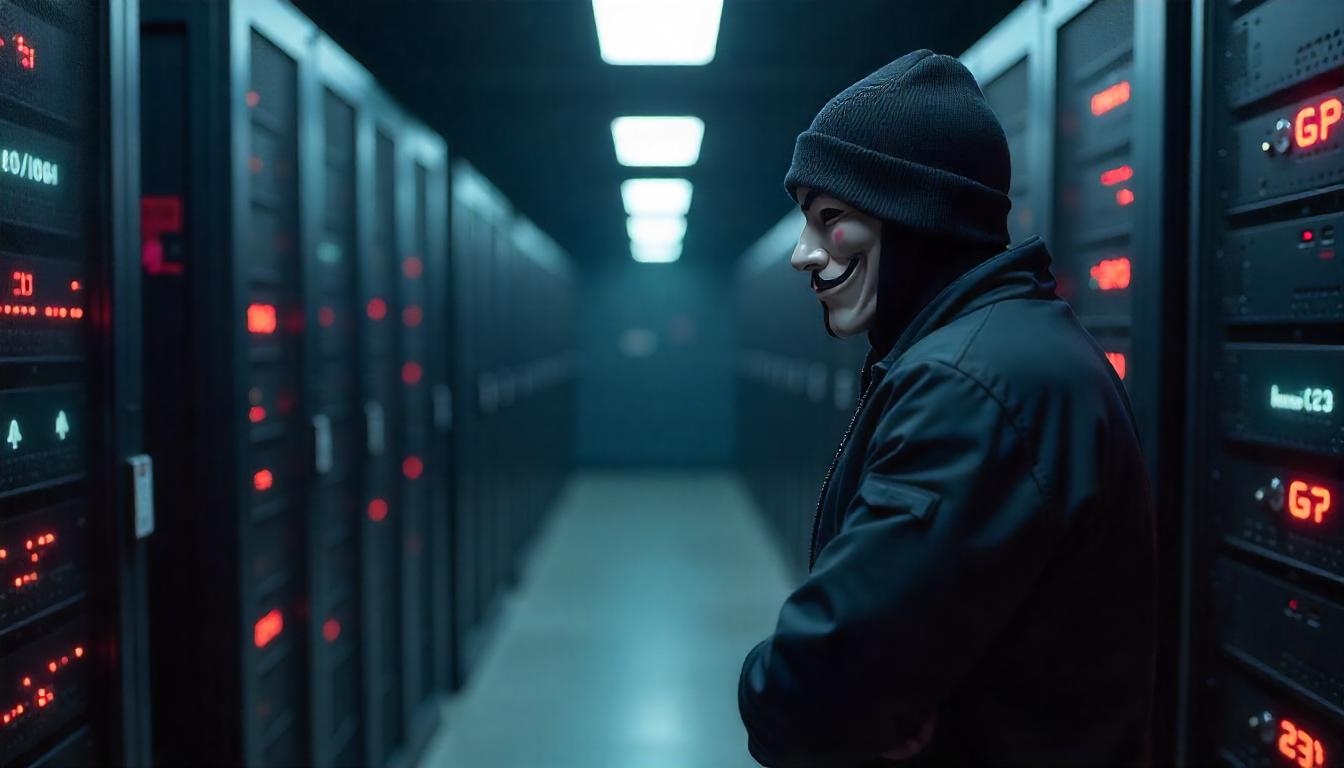In the vast landscape of the internet, very few names strike as much curiosity, fear, and debate as Anonymous—the decentralized hacktivist collective known for digital protests, cyberattacks, and a strong stand against censorship and injustice. Since their first major appearance in the mid-2000s, Anonymous has been both praised and criticized. But in today’s era of AI-driven cybersecurity and smart defense systems, many wonder: Has Anonymous evolved, or has modern tech outpaced the masked rebels of the digital world?

Let’s explore how Anonymous has changed (or not), the rise of AI in cybersecurity, and whether the hacktivist group still holds power in a world dominated by automation and machine learning.
A Brief Recap: Who or What Is Anonymous?
Anonymous is not a single person, organization, or even a fixed group. It is a loosely organized global movement with no centralized leadership. Its members are often internet users who collaborate (often anonymously) on causes they believe in—ranging from anti-censorship campaigns to taking down child exploitation networks. Over the years, Anonymous has made headlines with operations like:
-
Project Chanology (against Scientology),
-
#OpISIS (targeting terrorist propaganda online),
-
#OpRussia (after the Ukraine invasion),
-
and countless others.
But these were the early 2010s and mid-2020s. The world has since changed, and so have the tools used by governments, corporations, and cybersecurity experts.
Cybersecurity Today: AI Is the New Gatekeeper
Modern cybersecurity isn’t what it used to be. Gone are the days when simple firewalls and antivirus programs were enough. Today, networks are protected by AI-powered systems that can:
-
Detect abnormal traffic patterns,
-
Predict attack vectors,
-
Isolate threats in real-time,
-
and even “learn” from previous incidents to avoid future breaches.
This creates a new type of digital battlefield. The question becomes: How can a loosely organized group like Anonymous keep up with ever-evolving AI defenses and machine-learning algorithms?
Is Anonymous Still Active in the Age of AI?
The answer is yes—but differently. While Anonymous may not be as loud or widely visible as it was a decade ago, it has not disappeared. In fact, during major world events—such as political upheavals or wars—you’ll often see signs of the collective resurfacing with targeted digital operations.
However, unlike the early years, today’s operations are more selective and sometimes more sophisticated. In some cases:
-
They use social engineering and psychological tactics rather than brute-force hacks.
-
They rely on open-source intelligence (OSINT) and public data manipulation.
-
They spread awareness or cause disruption through doxxing, digital leaks, or mass coordination on social media platforms like Telegram, Reddit, and X (formerly Twitter).
So while AI has made large-scale network hacks more difficult, Anonymous seems to have evolved its tactics rather than disappeared altogether.
AI: A Tool for and against Anonymous
Interestingly, AI isn’t just the enemy—it can also be an ally.
Some independent members or spin-offs of Anonymous are experimenting with:
-
AI-generated phishing campaigns,
-
Deepfake videos for disinformation,
-
and automated botnets for DDoS (Distributed Denial-of-Service) attacks.
Because Anonymous is decentralized, its members range from script kiddies to highly skilled ethical hackers and cybersecurity researchers. This means some factions may use AI tools as part of their own campaigns. Yet, it’s a double-edged sword. The same tools they use can also identify, track, and neutralize threats quicker than ever. Once, a vulnerability could go unnoticed for weeks. Now, thanks to AI, it’s a matter of minutes or even seconds.
The Role of Modern Ethics and Public Perception
One of the often-overlooked aspects of Anonymous’s evolution is public opinion. In the 2010s, Anonymous had a Robin Hood-like image—standing up against corrupt governments, unfair corporations, and censorship.
But in today’s more politically divided world, things are more complex.
-
When Anonymous targets a regime, some see it as justice, while others see it as digital terrorism.
-
If an operation goes wrong (e.g., affects innocent users or businesses), the group may lose credibility.
-
Anonymous is not immune to internal disagreement, and not all operations are universally supported by the wider “Anon” community.
In the age of AI and deepfakes, authenticity is harder to prove, and mistakes carry a heavier public backlash.
The Decentralization Advantage (and Risk)
Modern AI-powered defense systems are heavily centralized—run by corporations, governments, or platforms. Anonymous, on the other hand, remains fully decentralized. This is both a strength and a weakness.
Advantages:
-
Harder to shut down.
-
No single point of failure.
-
Can quickly regroup and shift focus.
Disadvantages:
-
Lack of coordination can lead to failed or misguided operations.
-
No consistent ethical guidelines.
-
Can be hijacked or impersonated by bad actors.
Ironically, AI might be more predictable than Anonymous simply because it’s bound by its training data and objectives. Anonymous, however, thrives on chaos, creativity, and spontaneity.
Will Anonymous Survive the Next Decade?
Looking forward, the survival and impact of Anonymous will depend on a few key factors:
-
Adaptation to AI: Can they effectively use AI while avoiding AI detection?
-
Ethical Clarity: Will their actions align with public sentiment and modern cyber laws?
-
Operational Security (OpSec): With surveillance tools and digital fingerprinting growing more advanced, staying anonymous is getting harder.
-
Purpose: Anonymous will need to clearly define its role in a world where online activism, whistleblowing, and transparency are more structured and accepted.
Final Thoughts
So, has Anonymous evolved with AI and modern cybersecurity? Yes—but in unconventional ways. While AI has made hacking large-scale systems harder, Anonymous has shifted towards targeted digital activism, awareness campaigns, and strategic disruption. In many ways, Anonymous mirrors the internet itself—wild, unpredictable, and constantly evolving. Whether you see them as digital freedom fighters or online vigilantes, one thing is clear: in the battle between code and chaos, Anonymous remains a wildcard in the modern digital age.